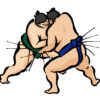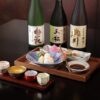What is the meaning of “hokkori”? What do you say in English? ほっこり

Aa-, hottori shita-.
あぁー、ほっこりしたー。
Hokkori shashin ni iyasareru wa-.
ほっこり写真に癒されるわー。
Mata anohito hokkori shiteru–.
またあの人ほっこりしてるー。
Nowadays, hokkori(ほっこり) is often used not only in TV programs and manga but also in everyday conversations.
Perhaps Japanese people all over the country can imagine what it means by listening to this word, but many adults still feel uncomfortable with the use.
Anyway, let’s take a closer look at “hokkori".
What does “hokkori" mean? What is its etymology?
Currently, “hokkori", which is used nationwide, means “feeling relieved," “warmth," “healing," and “relaxing."
Not only does it mean that something is physically warm, but also a situation that warms your heart.
For example, the situations where the word is used are:
When feeling relaxed in a warm room on a cold winter day,
When drinking a hot drink and feeling relieved,
When looking at cute pets such as dogs or kittens,
When feeling calm and relaxed,
When feeling you are healed, etc.
Where did “hokkori" come from?
The word “hokkori", which refers to warm things and something that is heartwarming, is originally a dialect of the Kyoto region and has a different meaning from the above. In the region, “hokkori" is still used in the traditional sense.
The word “hokkori" in the region has the meaning of “it was hard" and “it was tiring" and pronounces with an accent on “ho".
Soto wa samukatta kara hokkori shita wa-.
外は寒かったからほっこりしたわー。
It was too cold outside.
Kyou wa zutto arukippanashi de hokkori sita-.
今日はずっと歩きっぱなしでほっこりしたー。
I am so tired as I have been walking all day.
For this reason, many people in the Kyoto region feel uncomfortable with the recent differences in the use of “hokkori". Therefore, when you are in Kyoto, you need to be careful about how to use this “hokkori".
“Hokkori" used in the recent sense
There are various theories that triggered this word to be used nationwide.
First, everyone seemed to like Kyoto since JR Tokai started a campaign called “Let’s go to Kyoto" in the 1990s. And the number of TV programs featuring Kyoto has increased. In those shows, the reporter used the word “hokkori" to introduce Kyoto food or something without knowing much about the meaning.
Also, the words “hoka hoka(ほかほか、ホカホカ)" and “hoku hoku(ほくほく、ホクホク)" used to express the hotness or the warmth of freshly baked bread or a roasted sweet potato are confused with “hokkori".
In particular, the sound of “hokkori" is more likely to give an image of something “warm" than “tired".
Or, people in Kyoto often said ”hokkori shita(ほっこりした)" in situations such as relaxing at home, drinking a hot drink, warming themselves in a warm kotatsu, which outsiders were confused with the meanings of “tired" and “warm", and then spread the wrong meaning.
Or, people in Kyoto often said hokkori shita " in situations such as relaxing at home, drinking a hot drink, entering a hot kotatsu, so outsiders were tired " The meaning of “warm" was confused and spread.
Derived from such meaning, the expression “hokkori" is now used for an object or a person per se that gives such a feeling.
Example sentences using “hokkori"
Examples of the use of “hokkori" recently used nationwide are:
Ii hanashi wo kiite totemo hokkori shita kibun ni natta.
いい話を聞いてとてもほっこりした気分になった。
I heard a very heartwarming story.
Shigoto ni tsukaretara, doubutsu no akachan wo mite hokkori suru koto ni shiteiru.
仕事に疲れたら、動物の赤ちゃんを見てほっこりすることにしている。
When I am tired of work, I look at some photos of baby animals to feel relaxed.
Aa-, kono suupu ga attakakute hokkori suru wa-.
ああー、このスープがあったかくてほっこりするわー。
Oh, this soup is warm and relaxing.
Kono kafe daisuki. Honto hokkori suruu-.
このカフェ大好き、ほんとほっこりするぅ。
I love this cafe as it really makes me relaxed.
Aa-, samui. Hokkori shita oden ka oshiruko ga tabetai.
あー寒い。ほっこりしたおでんがおしるこが食べたい。
It is very cold. I want to have some hot oden or oshiruko.
















